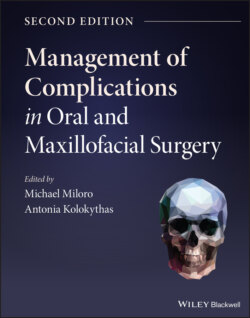Читать книгу Management of Complications in Oral and Maxillofacial Surgery - Группа авторов - Страница 49
Pediatric Cardiovascular Complications
ОглавлениеChildren typically do not suffer from systemic hypertension, coronary artery disease, or congestive heart failure as in adult patients. Though there is always the possibility of undiagnosed congenital heart disease, most children who present for ambulatory anesthesia will be free of cardiac disease. Notwithstanding this, cardiac complications do occur in the pediatric population though at a much lower rate. In the study by Kakavouli et al., cardiac complications accounted for 8.6% of all observed complications [22]. Cravero et al. reported a rate of cardiac complications (defined as a change of more than 30% in heart rate, blood pressure, or respiratory rate) of 60.8 events per 10 000 anesthetic cases [23]. Cardiac arrest, though rare, does occur in children who undergo anesthesia and has a reported incidence rate of between 4.95 per 10 000 [2] and 22.9 per 10 000 [7]. The majority of anesthetic‐related cardiac arrests are cardiac, mainly due to hypovolemia from surgical blood loss. Respiratory compromise leading to cardiac arrest is the second most common, the majority of which arise from respiratory obstruction such as from laryngospasm. Medication‐related cardiac arrest is third most common, and has become significantly less common as sevoflurane has replaced halothane [25].
